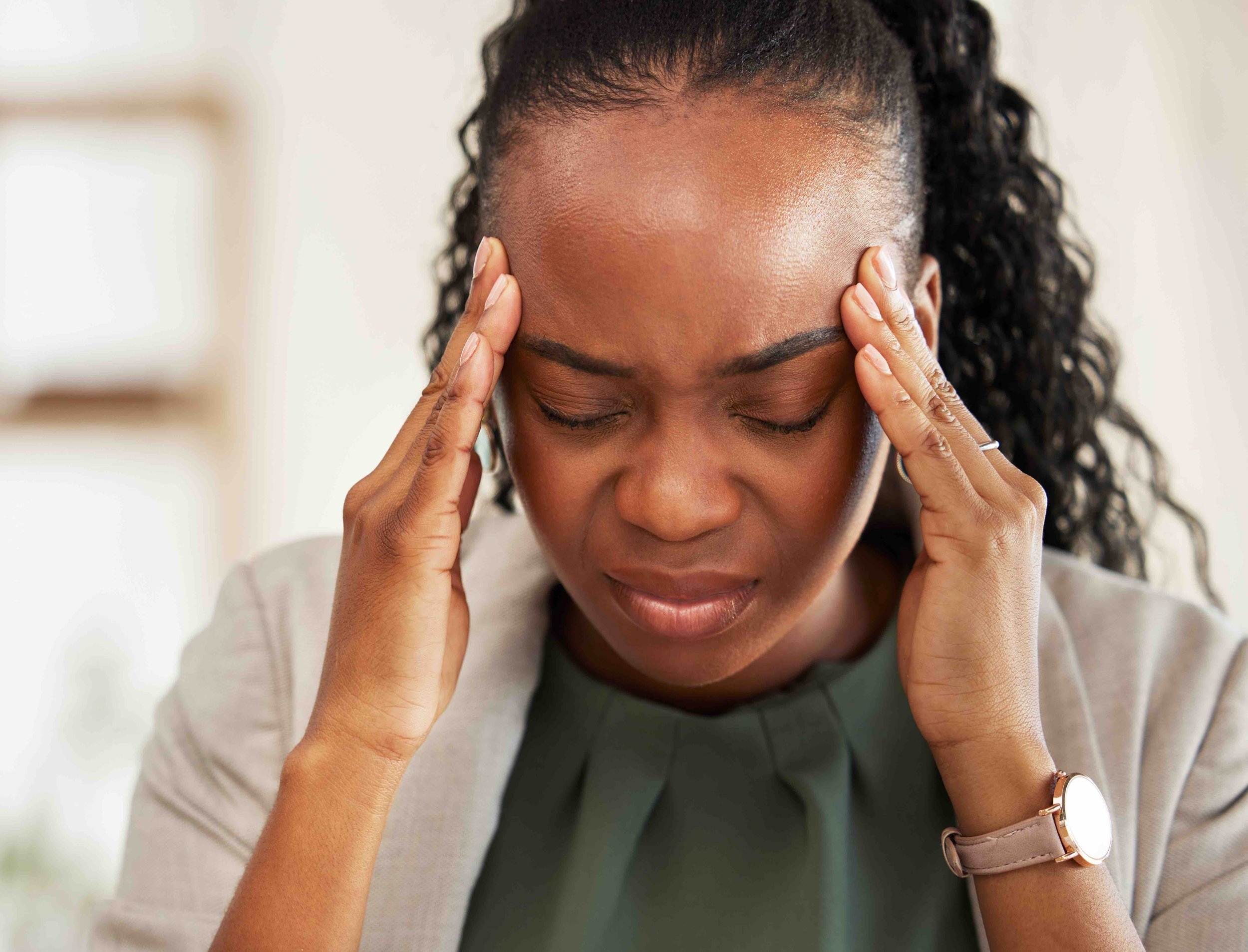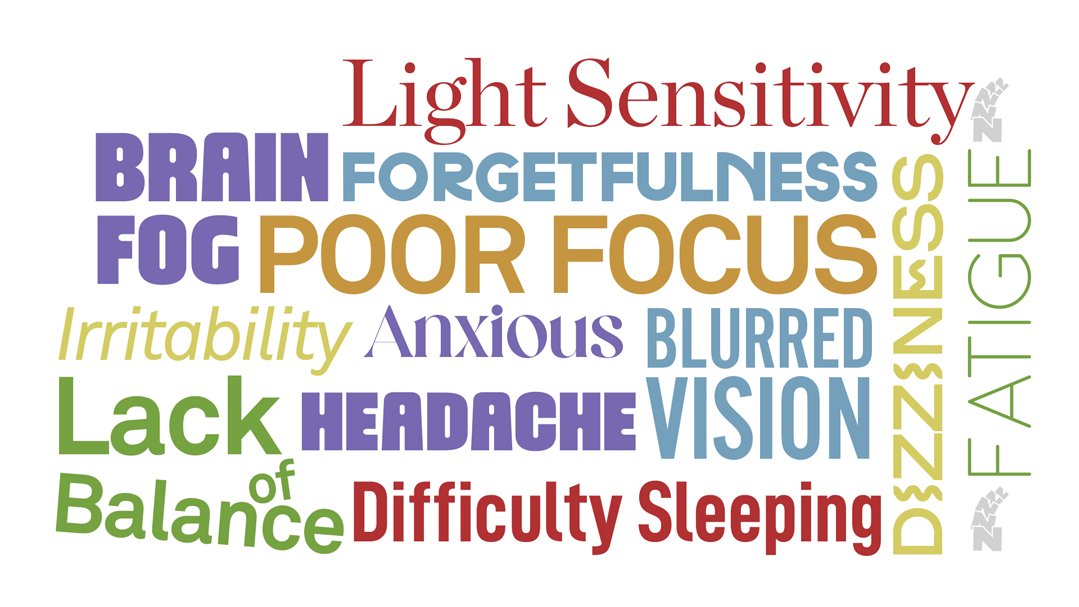Concussion Resources

What Does a Concussion Headache Feel Like? And How to Get Rid of Them
At Happy Brain Physical Therapy, I address the source of the headache, rather than just alleviating their severity. Post-traumatic headaches will not go away on their own, but they WILL go away by treating the root of the problem.

Traumatic Brain Injury Vision Problems: Common Symptoms and How TBI Vision Problems Are Treated
Vision problems after brain injury may affect your ability to read, focus, and maintain attention. It can also cause symptoms that are indirectly related to vision, such as dizziness and headaches. Vision changes after brain injury results from a number of long-term effects from trauma, including dysfunctional brain signaling and autonomic dysfunction. As vision therapy can and will improve your symptoms, it is just one part of the solution.

Post Traumatic Headaches: Causes and Treatment
Experiencing headaches after concussion can be debilitating and affect your daily life. In this guide, we delve into the causes of post-traumatic headaches, common symptoms, and effective treatment options. Whether you’re recovering from a sports injury, accident, or fall, our insights can help you manage concussion symptoms.

Find a Post Concussion Specialist: Why You Should Think Twice About Going to a Pricey Concussion Center
Have you or a loved one has suffered a concussion, finding the right specialist is crucial for proper diagnosis, treatment, and recovery. Concussions are complex brain injuries that require expert care, and choosing the right specialist can make a significant difference in your recovery journey. Here are some key factors to consider when looking for a concussion specialist near you.

How Do You Know if You Have a Concussion?
Wondering how to tell if you have a concussion? This guide covers common concussion symptoms like dizziness, headaches, and sensitivity to light, along with tips on how to recognize concussion signs at home. Learn the essential steps to take if you think you might have a concussion and explore effective ways to manage symptoms for a safe recovery.

Can a Head Injury Cause Vertigo?
Discover how to manage post-concussion vertigo and Benign Paroxysmal Positional Vertigo (BPPV) effectively. Learn about the causes, symptoms, and treatments, including the Epley maneuver, a proven technique for vertigo relief. Explore comprehensive recovery strategies to address concussion-related vertigo.

Vision Problems After Concussion: Symptoms and Treatment
Experiencing blurred vision or light sensitivity after a concussion? Vision issues are frequent post-concussion symptoms that can disrupt daily life. This article covers common vision problems after head injuries and offers helpful strategies to manage and improve visual symptoms as you recover.

Understanding Autonomic Dysfunction After a Concussion: Symptoms, Causes, and Treatment
Explore the link between post-concussion autonomic dysfunction (dysautonomia) and its impact on recovery. Learn how dysautonomia can cause dizziness, heart rate issues, and other symptoms, plus discover effective management and treatment strategies to regain control of your health.

What to Eat and What Not to Eat After a Concussion: Top Foods for Brain Healing and Recovery
Curious about what to eat after a concussion to support recovery? This guide covers the best brain-boosting foods, anti-inflammatory choices, and essential nutrients that can help reduce concussion symptoms and promote healing. Discover how the right nutrition can play a key role in your journey to feeling better and speeding up recovery.

Best Supplements for Concussion Recovery: Essential Nutrients to Support Brain Health and Healing
Explore the best supplements to support brain health after a concussion. This guide covers essential post-concussion supplements like omega-3s, antioxidants, and magnesium, which can help reduce inflammation, boost cognitive recovery, and aid overall healing. Learn which supplements are most effective for concussion recovery and how they can support a faster return to feeling your best.

What To Do If You Have a Concussion
What to do if you have a concussion. If you have concussion symptoms here are tips on concussion management for the first 24-48 and beyond.

Concussion Recovery Explained
Discover essential insights into concussion recovery, including common symptoms, healing timelines, and effective strategies to support recovery. Empower yourself with knowledge for a smoother, healthier journey post-concussion

What to do after a Concussion
Learn what concussion rehab looks like with this guide on effective recovery steps. Discover what to expect in therapy, safe exercises for post-concussion recovery, and essential tips for healing after a concussion

Effective Treatments for Autonomic Nervous System Dysfunction After Concussion
Autonomic Nervous System dysfunction aka dysautonomia is commonly a key contributor to post concussion symptoms and is frequently overlooked in concussion rehabilitation. Autonomic dysregulation after concussion is treatable.

How Do I Know if I Have Sustained a Concussion?
Concussion diagnosis is based on symptoms. The Post Concussion Symptom Scale (PCSS) is the gold standard for recognizing and monitoring symptoms.

The Role of Nutrition Supplements in Concussion Recovery
What we consume directly affects how our brains function. In addition to proper nutrition, there is evidence that vitamins can assist with brain health and concussion recovery. Here is a guide to supplements that have been shown to be beneficial in mitigating post concussion symptoms.

Vision Changes After a Concussion
Post-trauma vision syndrome (PTVS) after concussion is common and can manifest as blurred vision, double vision (diplopia), difficulty visually processing, headaches, and dizziness.

Post-Trauma Vision Syndrome (PTVS) After Concussion (Part 1)
Post-trauma vision syndrome (PTVS) may affect your ability to read, focus, and maintain attention. It can also cause symptoms that are indirectly related to vision, such as dizziness and headaches. PTVD results from a constellation of long-term effects from trauma, including dysfunctional brain signaling and autonomic dysfunction. As vision therapy can and will improve your symptoms, it is just one part of the solution.

Why Baseline Test for Concussion?
Concussion Baseline Testing is used as a way to assess balance, vestibular ocular function, and brain function when the brain is in a healthy state Results from baseline tests can be used and compared to a similar exam conducted if a person has a suspected injury. Baseline testing can help identify concussion symptoms early which will lead to more efficient and effective treatment.

Understanding Vertigo: How Ear Crystals Cause Dizziness and Effective Treatment Options
Discover effective treatment options for positional vertigo (BPPV) in Park City, Utah
